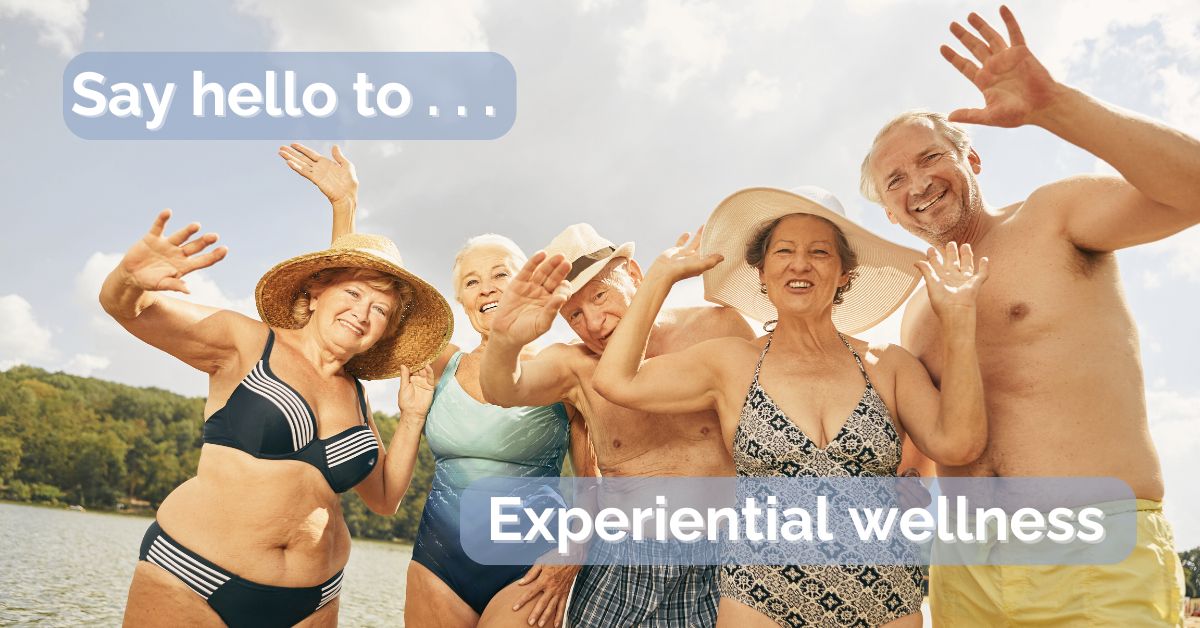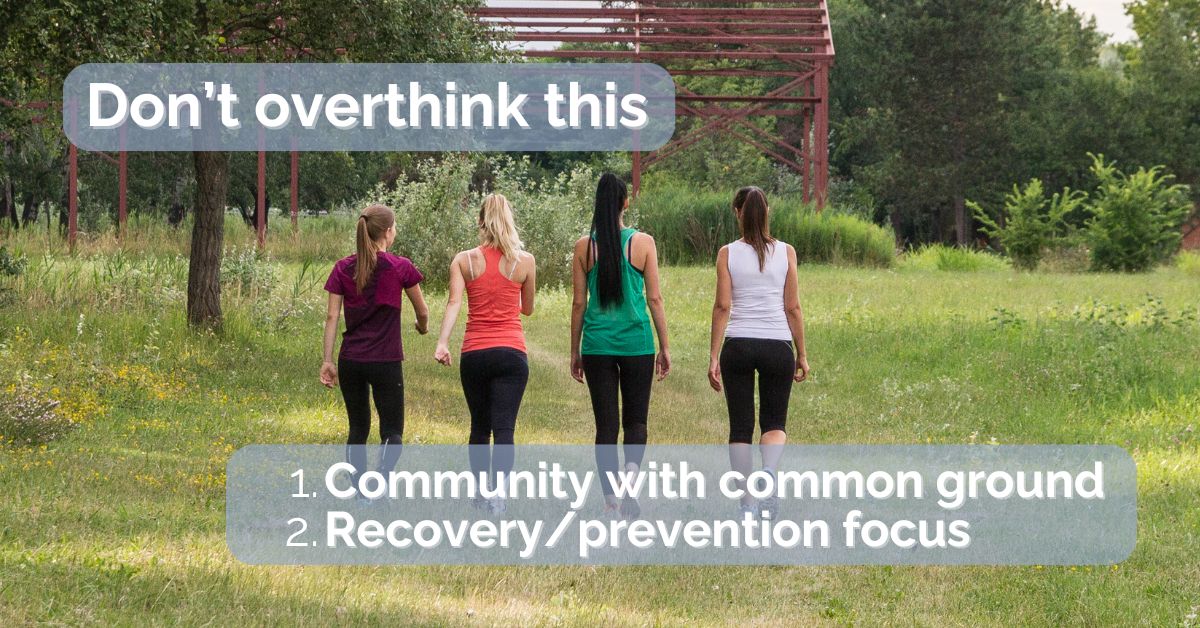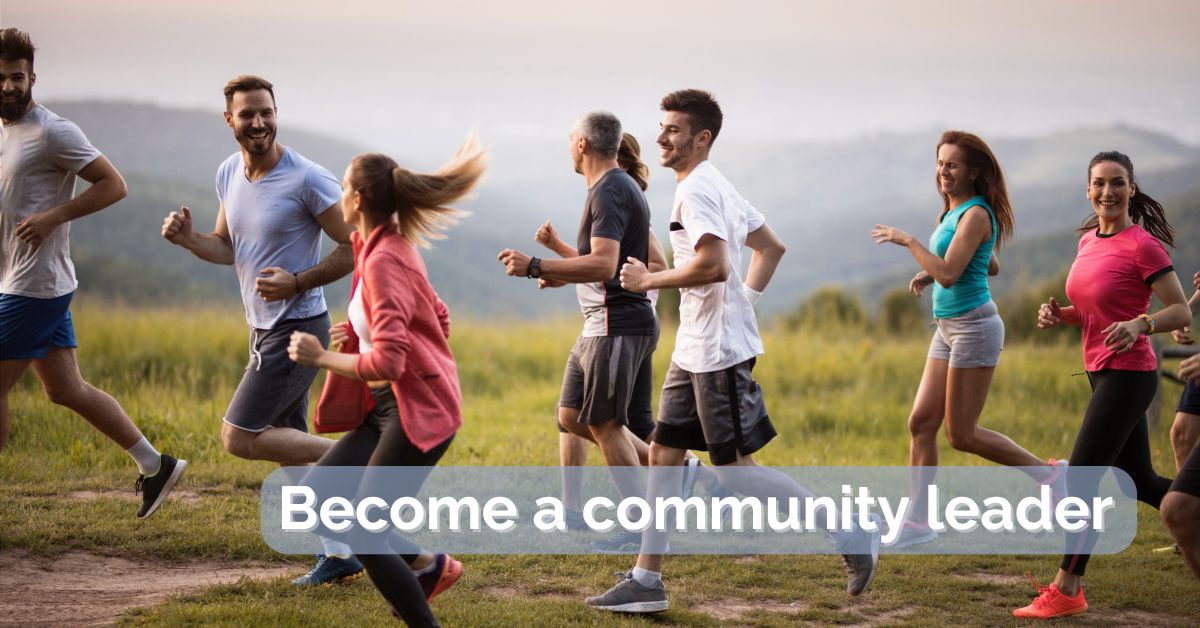New look healthcare is coming fast - Are you ready?

Healthcare is evolving - It’s no longer just about treatment
If your healthcare practice is currently a place people only visit when something’s gone wrong, it’s time to reflect and possibly have a rethink.
There’s a global shift happening in the world of health and wellbeing, the lines between the two are blurring, and many small healthcare practices haven’t noticed. But it’s there if you look.
Within our industry, there is a new breed of businesses emerging and thriving. These businesses aren’t just health service providers fixing an existing problem. They’re also focused on both building communities and fostering prevention focused lifestyles. They’re experience creators, purpose-driven brands that empower people to take control of their health before crisis hits. They deliver transformation and experiences, not just a transactional appointment.
They’re winning because they understand that more and more people are looking for, and being helped on their health journey by, proactive, preventative support, connection, and a shared experience, not just an appointment to fix something.
If you’re a forward looking practice owner interested in new opportunities, this should make you sit up and pay attention, because you have a unique opportunity to benefit from this shift.
The rise of experiential wellness: what it looks like

First I want to take a moment just to define what I mean by experiential wellness.
At its core, experiential wellness is about creating opportunities for people to actively engage with improving their long term health, not just consume information or receive treatment. It’s participatory, immersive, and emotionally engaging. It’s wellness that is felt, shared, and lived.
Instead of offering a one-off appointment, these businesses create a journey. They invite people to learn, connect, move, reflect, and grow, often in a group or community setting.
Experiential wellness is built on a few powerful foundations:
- Community: These organisations are giving people a sense of belonging and shared purpose. That might mean walking together, learning together, or simply being part of a regular group that encourages healthier habits through camaraderie and group accountability.
- Prevention: Helping people take action before something breaks down. Think posture workshops, mobility training, stress reduction, injury prevention, and lifestyle change support. These services help people avoid injury, illness, and burnout.
- Personal empowerment: These experiences help people take ownership of their long-term health. It’s not about short-term fixes or building dependency, it’s about giving people the knowledge, tools, and support to actively participate in developing their own wellbeing and long term health. That might include self-reflection tools like journaling, progress tracking, learning how to read their own warning signs, or understanding the lifestyle shifts that keep them strong, mobile, and resilient over time.
- Multi-sensory design: Many of these businesses create experiences that fully engage the senses, movement paired with music, meditation outdoors, uplifting visuals and lighting, calming sounds, and even scent. These immersive details create emotional resonance and long-lasting impact.
- Mind-body integration: The most effective experiences don’t separate physical health from mental or emotional wellbeing. They include breath work, mindset coaching, stress regulation, meditation, and sometimes spiritual elements, all focused on helping people nurture a holistic approach to health.
- Consistency and ritual: Wellness becomes sustainable when it becomes part of your routine. These businesses don’t rely on one-off events, they offer repeated, regular gatherings that help people turn insight into habit and habit into better health outcomes.

Why community matters more than ever
In my 2025 industry predictions, I said:
"Patients want to feel like they’re part of something bigger and more personal than a transactional appointment system."
I believe that is still true. But let’s dig a bit deeper.
We’re in the midst of a loneliness epidemic, mental health problems are rising, chronic lifestyle-driven illness is increasing, and people are overwhelmed by choice, conflicting advice, and short-term solutions.
They don’t need more treatment. They need more people to help and support them in leading a healthier lifestyle.
They don’t need generic health tips. They need personal support from professionals they trust, and encouragement from a community they feel they belong to.
And that’s where local practices can shine.
Let’s talk prevention (not just buzzwords)
Illness, injury, or disease prevention is no longer a niche idea. It’s a global megatrend.
The World Health Organisation now actively promotes ‘wellness culture’, an approach focused on physical, emotional, social, and spiritual wellbeing. Meanwhile, gyms and lifestyle brands are taking the lead, but I really believe that there is a role to play in this shift for local healthcare providers.
Here’s the mindset shift:
What if your practice didn’t just help people recover from injury, but helped them prevent it?
What if you didn’t just diagnose, but educated, motivated, and walked alongside people as they transformed their lives?
What if you didn't just treat patients in isolation but enabled them to join with others on the same journey?
That’s the real opportunity.
And the exciting part? This isn’t just altruism. It’s smart business.
Now let’s look at how this plays out in real businesses making it work. Here are a few examples of businesses embracing some or all of these areas.
Friday Night Lights Run (UK): What began as a casual social jog now attracts hundreds. It’s not about pace or performance, it’s about belonging. Participants light up the streets with colour, music and camaraderie. People show up for the feeling, not just the fitness.
Dawnbreaker (Australia): A sober, sunrise, energetic silent disco with mindfulness. What?!! I know right. But this is community wellness in action, energetic, heart-opening, habit-forming, and taking off big style!!
Runningman Festival (UK): This is a unique event that combines the thrill of running with the benefits of a wellness retreat, all within a vibrant and engaging community festival type setting that is spawning a growing community of active fun fitness seekers held together by this one idea.
The Well (USA): A luxury wellness space that integrates medical, fitness, and spiritual care. They offer a membership model that includes workshops, coaching, and holistic treatments, all with a strong sense of community and education.
Wild Wellness (Australia): Wilderness hikes and cold-water plunges are paired with journaling, breath work, and guided support. Run by health professionals, this model places prevention and emotional wellbeing front and centre of their business model.
These are all relatively big organisations now, but they started small and you can learn from what they have figured out - what an increasing number of people want:
- Connection and community
- A proactive approach to staying well
- Experiences that inspire action
- A tribe of like-minded people to keep them accountable
They’re doing what many small healthcare practices could be doing, if they dared to reimagine their role.

What you can learn from all this
I believe:
Your private practice doesn’t only have to be a place of treatment.
It can be a source of connection, prevention, and ongoing wellbeing.
Society is shifting. Many people are moving their focus from wanting to get treatment for a problem, to taking ownership of their long-term health and looking for ways to curate the longest healthiest life they can for themselves. If they can do that while being encouraged by health professionals and likeminded people - that's a win!!
More and more people in the coming years are no longer going to be satisfied with short, one-off appointments that focus purely on fixing what’s already broken. People will be looking for a more holistic, empowering experience. Treatment yes, but then what's the next step?
They'll want to understand their own bodies, get ahead of future problems, and take meaningful steps toward lasting health, ideally with the support of professionals they trust and a community that shares their goals.
They’ll actively seeking out opportunities to improve their health in environments that feel welcoming, encouraging, and purposeful. That might be a simple walking or support group, a social network, a workshop, or a prevention programme backed up by the expertise and resources to make their journey easier. But what they’ll really be buying into is a new identity. One that feels empowering.

How could you make this work?
Well, you probably already have everything you need to help them on that journey:
- Clinical authority and trust
- A patient base that values your help
- A respected position in your local area
- The desire to do things differently
What you might be missing is the shift in vision from a clinic that treats problems to a brand that builds lifelong wellbeing.
Building a more sustainable practice
And here’s something else to consider: when you focus on prevention and connection, you naturally extend the life expectancy of your patient relationships. Instead of a one-off interaction or a short series of appointments, you become a trusted partner in their long-term health journey. That leads to more loyalty, more referrals, and a stronger, more sustainable business.
Imagine adding:
- Shared experiences rooted in prevention
- Ongoing education and empowerment
- Reasons for patients to return and engage, even when they’re not in crisis
This isn’t about turning your practice into a wellness festival. It’s about unlocking a more powerful, potentially more sustainable version of what you already do, by helping people stay well, not just get well.
That’s where the magic could happen.
What this could look like in your clinic
Let’s get practical. Here are some real ideas you could explore:
🏃♀️ Run a monthly walking club
Perfect for post-rehab patients, older adults, or anyone managing chronic conditions. It’s simple, free, and builds connection and loyalty.
🧘♀️ Offer small-group strength or mobility classes
Designed for people with specific pathologies, back pain, arthritis, post-natal needs, or those prepping for surgery.
🗓️ Host quarterly ‘Health Reset’ events
Mini workshops with guest speakers, healthy foods, short taster sessions, product demos, and social connection. Think wellness fair, but smaller and more personal.
👩🏽🌾 A no-exercise exercise club
A community vegetable gardening club that rotates round different members gardens, working and learning about vegetable growing together, while developing muscle strength, mobility and balance and also eating more organic vegetables.
🤝 Create a ‘Healthy Ageing Circle’
Weekly drop-ins with gentle movement, education, and peer support for over 60s. You’ll build local advocacy and strong patient relationships.
🧠 Run educational evenings
Topics like injury prevention, foot health, menopause support, or managing long-term conditions. Bringing people together around shared challenges is powerful, leading to friendship, long term support, camaraderie and improved long term health.
Any of these could position you as a caring community leader. Not just a clinician.

Business model options: yes, you can make money from this
A common worry is: “It all sounds lovely, but does it pay?”
Yes. Here’s how:
1. Membership models
Offer a low-cost monthly subscription that gives people:
- Access to a class or workshop each week/month
- Exclusive content via email or WhatsApp
- Member-only booking perks or early access
It creates recurring revenue and keeps patients engaged long-term.
2. Pay-per-session community events
Host events or talks that people pay to attend. Combine practical advice with uplifting community connection. Start small and build demand.
3. Hybrid health programmes
Combine in-person treatment with:
- Home video support
- Weekly check-ins
- Group accountability
Charging for each additional element allows you to scale your expertise while keeping the personal touch.
4. Local partnerships
Collaborate with gyms, yoga studios, cafés, health food stores, or wellness product providers. Run joint groups so sharing the admin and facetime with your community. Share marketing costs and extend your reach more easily.
5. Corporate wellness packages
Offer businesses in your area support with posture, stress, injury prevention, or menopause transition. Group-based solutions mean a stronger community and sense of belonging plus better margins.
Examples of healthcare practices starting to shift
While the fitness industry leads the way, some pioneering clinics are catching on I've seen examples of:
- Women’s health physios running pelvic floor classes instead of just one-on-one assessments.
- Osteopaths hosting baby handling workshops.
- Podiatry practices developing local community zero to 5K running groups.
- Chiropractors building back pain support communities through open days, yoga collaboration, and Facebook Lives.
These aren’t gimmicks. They’re smart, sustainable shifts.
Final thoughts: small practice, big impact
You don’t need a national franchise or a five-figure marketing budget to make this work.
You just need to see what’s possible, be excited by it, and start small.
The future of healthcare is happening now. And the practices that embrace this shift towards prevention, experience, and community will thrive. Financially. Emotionally. Professionally.
You could wait and see if this catches on…
Or you could lead the way in your local community.
Your patients are probably ready. Are you?
OK, that's it for this blog. Thank you soooo much for taking the time to stop by my healthcare marketing blog today. I really hope you found value in spending some time here today.
I’d be so grateful if you could spare me just another 5 minutes to share your thoughts or questions in the box at the end of this page. What are you going to do differently now in your private practice?
Oh, and please use the social share buttons if you think other people you know might benefit from seeing this.
Until next time.
Thank you

Jill Woods
Healthcare Marketing Specialist
Founder of Practice Momentum

